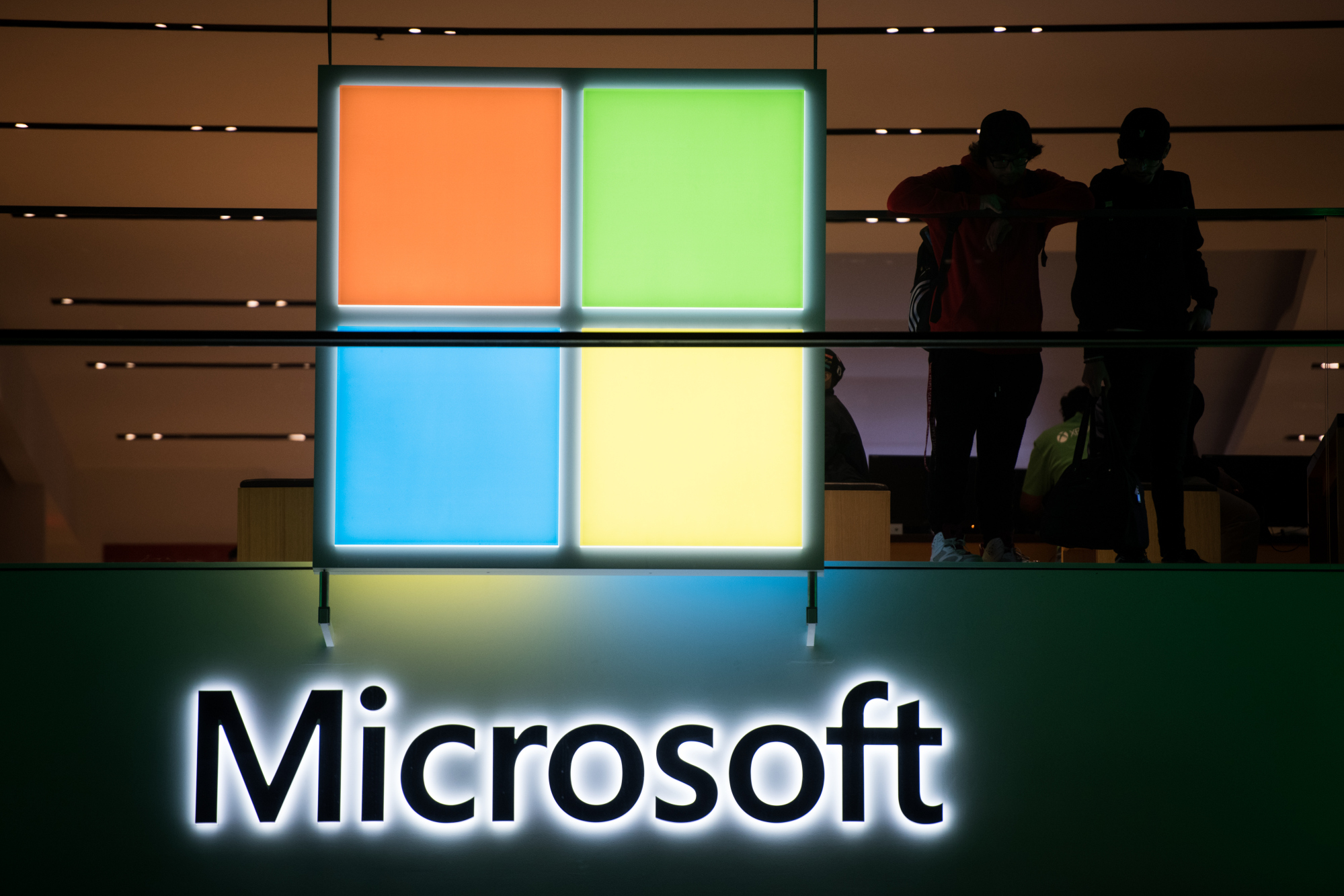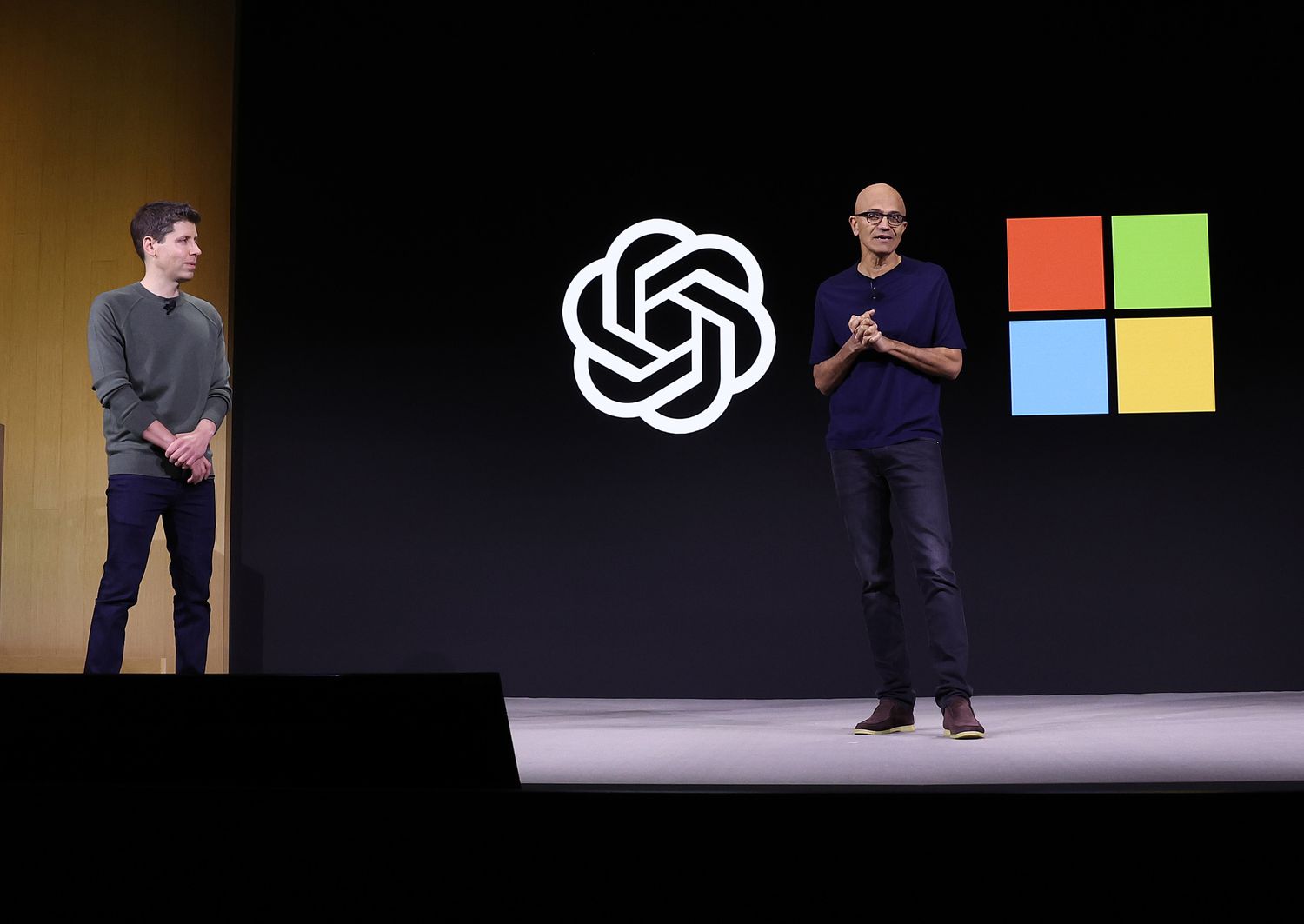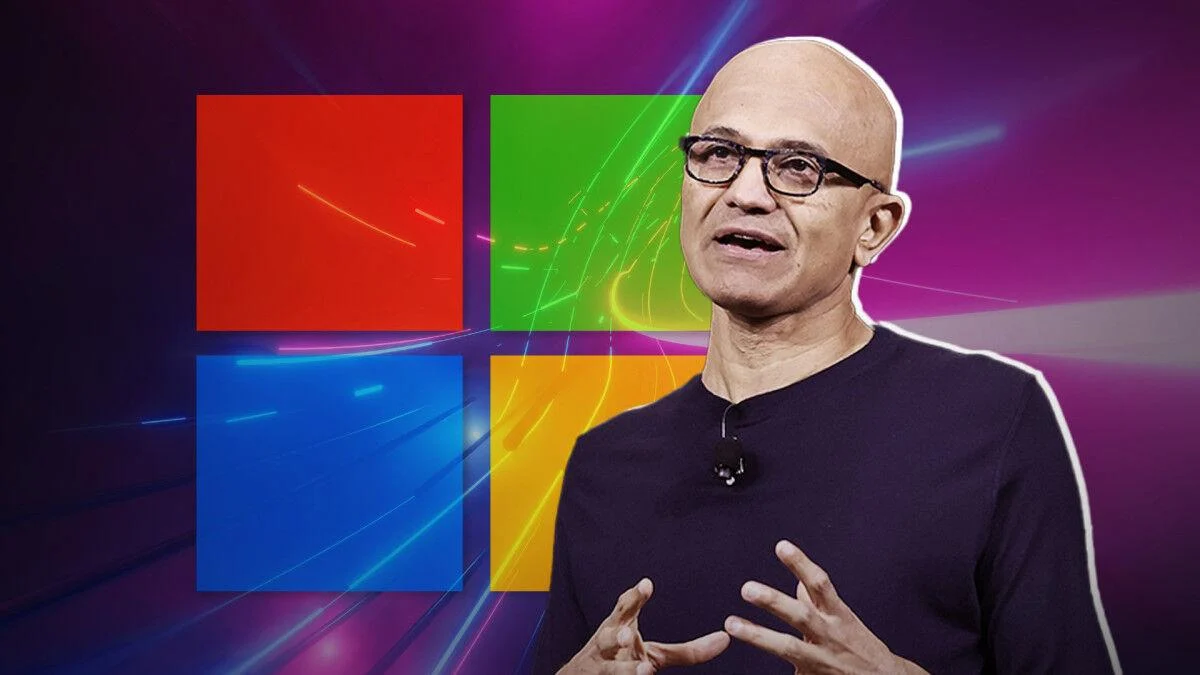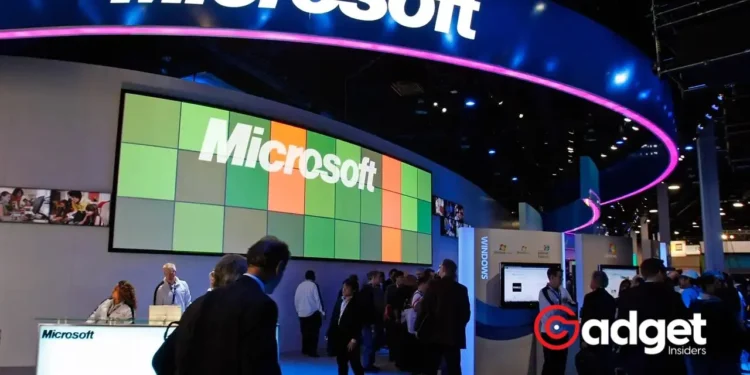The tech world stands on the brink of a revolution, one that promises to radically alter our reality with just two letters: AI. Artificial Intelligence, a field that combines the allure of technological innovation with the promise of future advancements, with the help of Microsoft is now shaping up to be the most significant ‘Next Big Thing’ in recent memory. With projections suggesting the AI market could swell to nearly $740 billion by 2030, it’s no wonder that corporations and analysts alike are paying attention.
Yet, amidst this burgeoning hype, Microsoft has emerged as a central figure, with its latest strategic moves and partnerships positioning it at the forefront of this transformative wave.
Microsoft and AI: A Match Made in Tech Heaven
At the core of the tech brand’s strategy lies its deep integration of AI technologies across its suite of services and products. CEO Satya Nadella’s commitment to embedding AI into everything from operational databases to analytics is not just talk; it’s a well-executed plan that’s already bearing fruit.
With its fiscal second-quarter earnings showcasing a robust 18% growth, driven significantly by its intelligent cloud business, Microsoft’s financial health appears as strong as ever.

The anticipation around the company’s fiscal third-quarter results is palpable, especially with the CEO’s promise of AI’s role in “transforming work.” Citing improvements in productivity of up to 70% when using generative AI for specific tasks, Nadella’s vision for AI extends beyond mere efficiency.
It’s about revolutionizing how we approach work, making tasks faster and more intuitive for Microsoft 365 users.

The announcement of a new division, Microsoft AI, dedicated to consumer-facing AI products and research, alongside a monumental $100 billion data center project in collaboration with OpenAI, signals the company’s bold steps towards an AI-dominated future.
Dubbed ‘Stargate,’ this initiative aims to launch an artificial intelligence supercomputer by 2028, showcasing the scale of Microsoft’s ambition.
Wall Street Takes Notice: Microsoft’s Strategic Advantage
The buzz surrounding the brand’s aggressive AI push has resonated well with Wall Street, with several analysts adjusting their outlooks and price targets for the tech giant. Wedbush tech analyst Dan Ives notably increased his price target on Microsoft, citing the AI revolution’s arrival and the brand’s strategic positioning to monetize its Copilot technology effectively.
According to Ives, the widespread adoption of this tech is not just speculative; it’s already happening, with potential revenue boosts estimated between $25 billion to $30 billion by 2025.
Market News – 02 April 2024
🔸Bitcoin Drops Over 5% as Upbeat U.S. Factory Data Powers Dollar Index to Nearly 5-Month High;
🔸Stock Futures Slip Tuesday Morning after S&P 500 Falls to Start Second Quarter;
🔸Analysts Revamp Microsoft Stock Price Target amid OpenAI Reports.#BTC pic.twitter.com/c9IiKQr7sU— @FXOpenBroker (@FXOpenBroker) April 2, 2024
Further endorsements from financial institutions like Bank of America and Jefferies have solidified Microsoft’s status as a leader in the AI space.
With Bank of America maintaining a buy rating and a bullish stock price target, and Jefferies analyst Brent Thill naming Microsoft the “top artificial intelligence winner,” the consensus is clear: The company’s foray into AI is not just transformative for the company but for the entire tech ecosystem.
Looking Ahead: The AI Horizon
As the AI landscape continues to evolve, Microsoft’s strategic investments and developments position it as a pivotal player in defining the future of technology.
The company’s focus on empowering individuals through AI, as emphasized by OpenAI COO Brad Lightcap, speaks to a broader vision of technology serving as a tool for enhancement rather than replacement.

As we stand on the cusp of this AI revolution, the implications for productivity, creativity, and efficiency are immense. With Microsoft leading the charge, Microsoft the potential for transformative change across industries and sectors is unprecedented.
The journey into this new era of AI is not just about technological advancement; it’s about shaping a future where technology amplifies human potential, making the once-impossible within reach.










